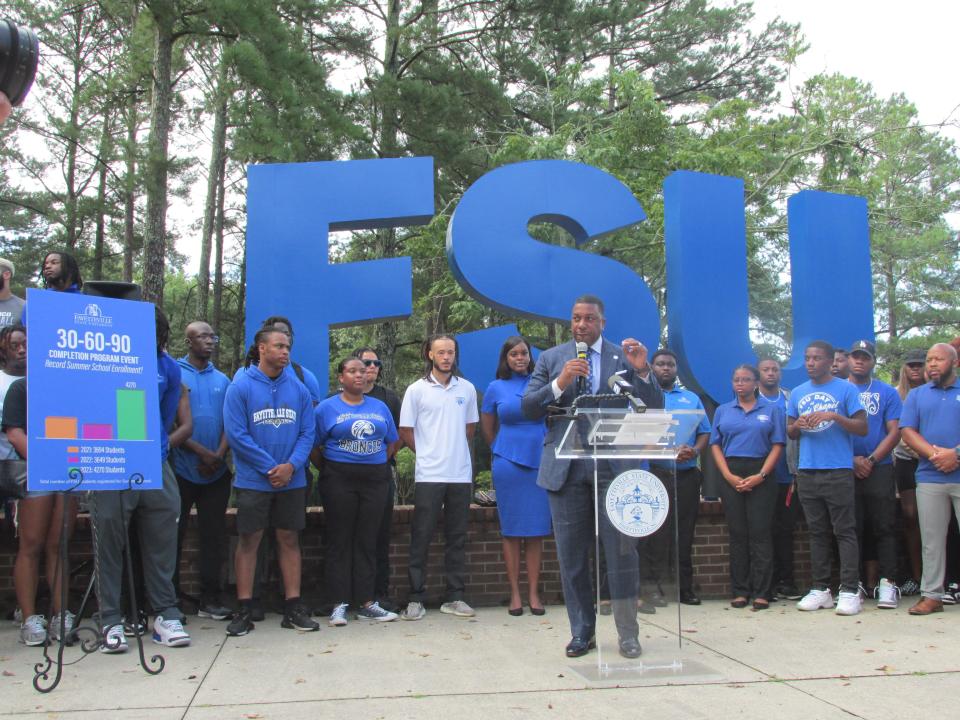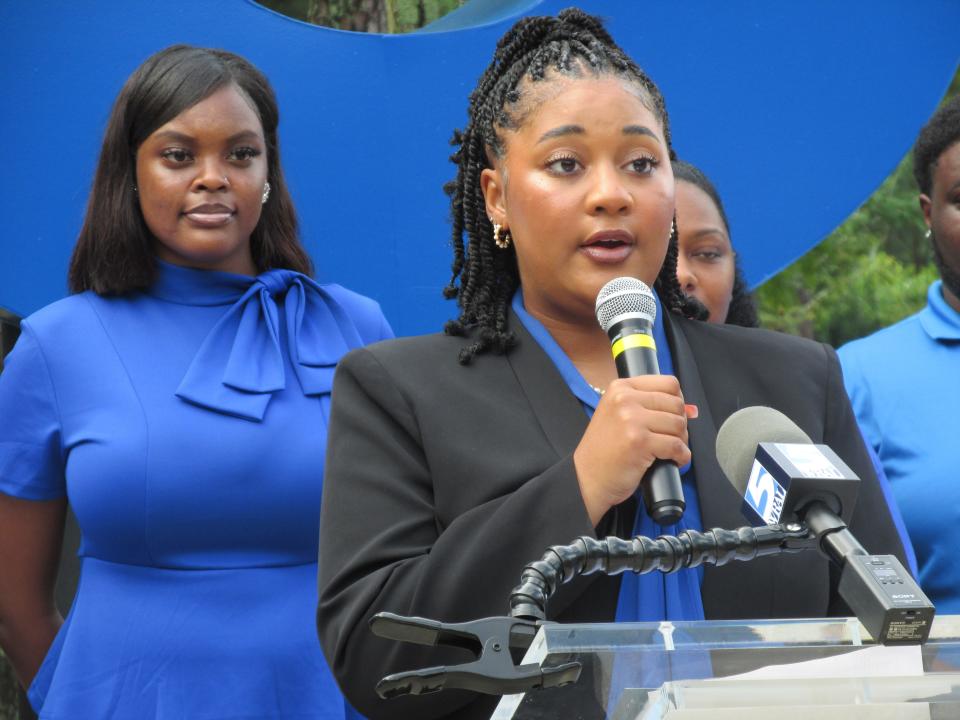Will Fayetteville State University be able to continue its free summer program?
Fayetteville State University has reached a record for summer enrollment, university officials announced Thursday.
About 66% of the historically Black college’s student population, or 4,270 students, are enrolled in summer courses, Chancellor Darrell T. Allison said during a news conference outside the school's Charles W. Chesnutt Library.
The enrollment coincides with FSU’s Free Summer School and 30/60/90 Completion Program.
The program launched in 2021 and is based on the premise that students need 120 credit hours to graduate in four years and are encouraged to average about 30 hours in credits each year, Allison said.
“We made a pact with our student that, if you will begin attempting 15 credit hours per semester in the fall the spring, …. we got your back in the summer,” Allison said.

Free summer school
Aimed at improving student retention and graduation rates, FSU offers free summer classes, up to seven credit hours, under the program, Allison said.
FSU has seen a 6.4% increase in retention rates compared to the previous year and a 2.5% increase in the four-year graduation rate, according to the most recent data, Monica Leach, provost and senior vice chancellor for academic affairs, said in a news release that followed the announcement
During the program's first year n 2021, 3,694 students enrolled in summer courses. Last year 3,649 students enrolled.
“When there's talk at the national, federal level and state level about debt, we are here to make the investment to make Fayetteville State University most affordable, and we want to get it done sooner rather than later so you're not strapped with debt,” Allison said.
Initial funding for the 30-60-90 Program was covered by federal dollars during the COVID-19 pandemic, he said.
Program funding
Allison said the federal funds are approaching an end, but officials have reached out to foundations and other entities to see the funding continue.
A bill for consideration in the North Carolina General Assembly would provide $10.5 million to the University of North Carolina's minority-serving institutions, or about $1.5 million per institution through the UNC System Completion Assistance Program.
Allison said the program would mean that the free summer school could continue for FSU students, while the university receives private funds to help students complete their four-year degree.
The program has been supported by the Anonymous Trust, Cumberland County Foundation, and the North Carolina Office of the Governor.
Students say how the program has helped
Brianna Alston is an FSU student who was able to take classes through the program last summer.
Alston is a dual accounting and business major who said when she added a second major to her graduation plan, she faced not being able to graduate on time.
By taking a few classes during the summer, Alston said, she’ll be able to graduate early, in December.
“This program really helped me to be able to stay on track,” Alston said.
The English and general business classes she took during the summer allowed her to focus in the fall on “more pressing” courses like auditing, she said.
Keturah Haynes is another student currently enrolled in FSU’s Summer II classes.

Haynes is a sophomore social work major who is a first-generation college student.
The free summer program, Haynes said, allowed her to take a social work class and an entrepreneurship class.
“Now, I'll be able to have one less class each semester in fall and spring,” she said.
Haynes said the summer class is on a quicker four-week schedule and while she may have more assignments in a shorter period of time compared to classes in the fall or spring, she finds it easier to complete a couple of classes now. Chancellor Allison said another benefit of the summer school program is that freshmen students who take summer classes each year could have 27 summer credits, or almost a year's worth of college, paid for by the time they reach their senior year.
“We're invested,” he said.
Staff writer Rachael Riley can be reached at rriley@fayobserver.com or 910-486-3528.
This article originally appeared on The Fayetteville Observer: Funding for Fayetteville State University free summer program nears end

